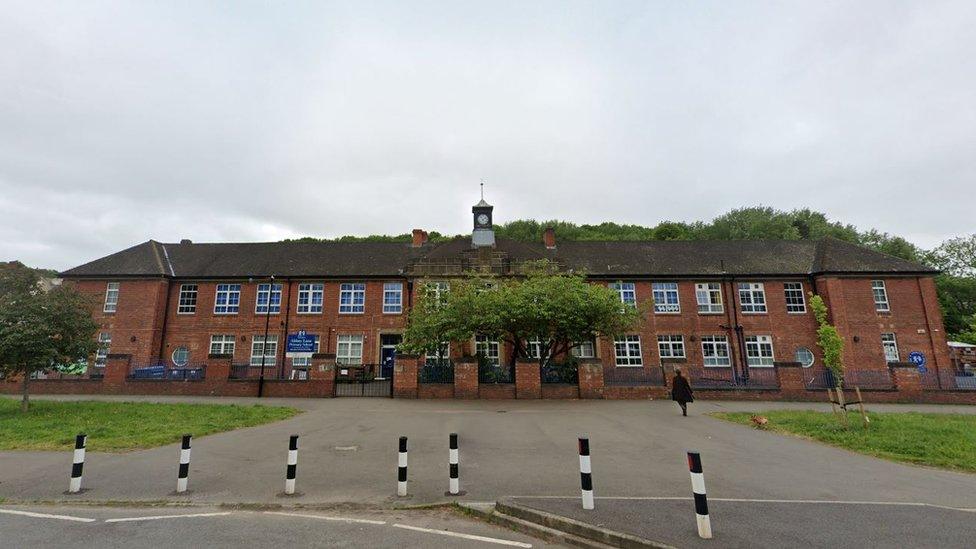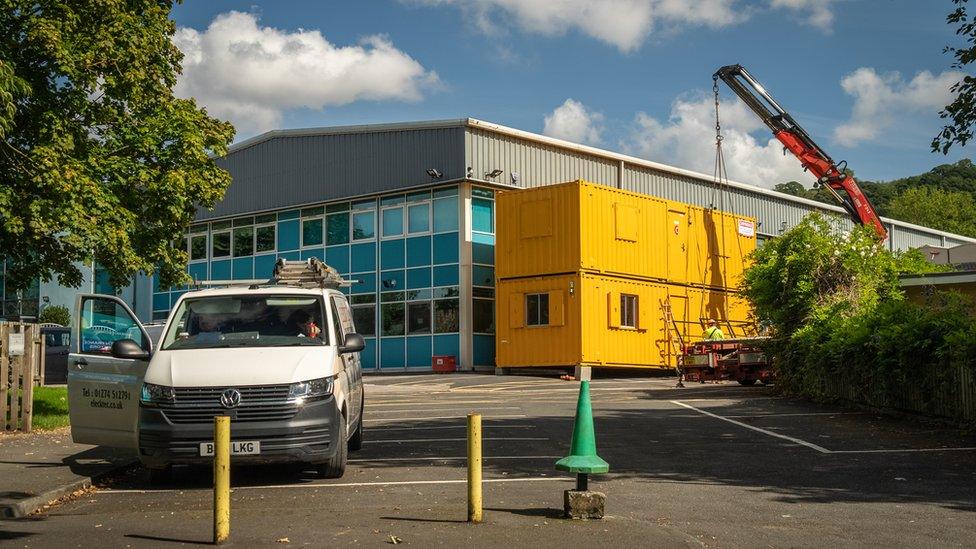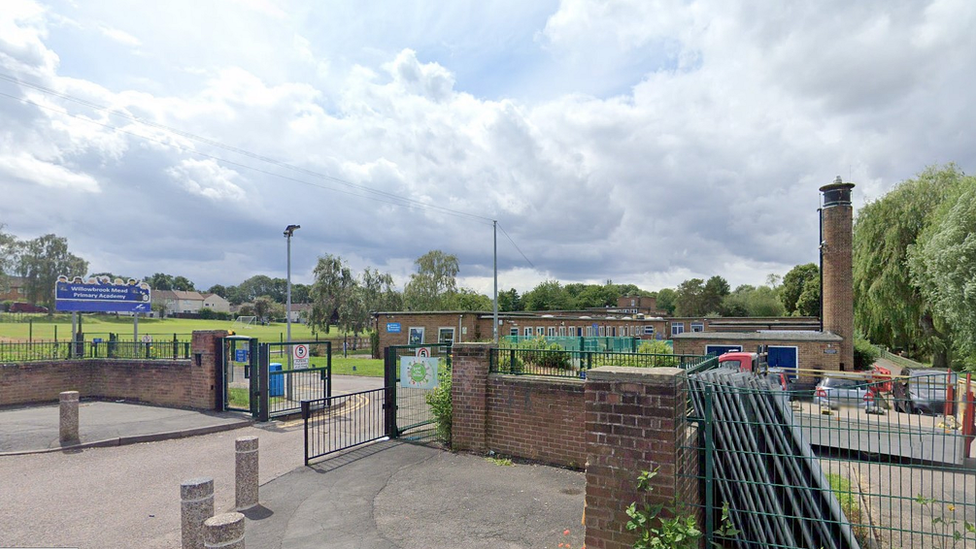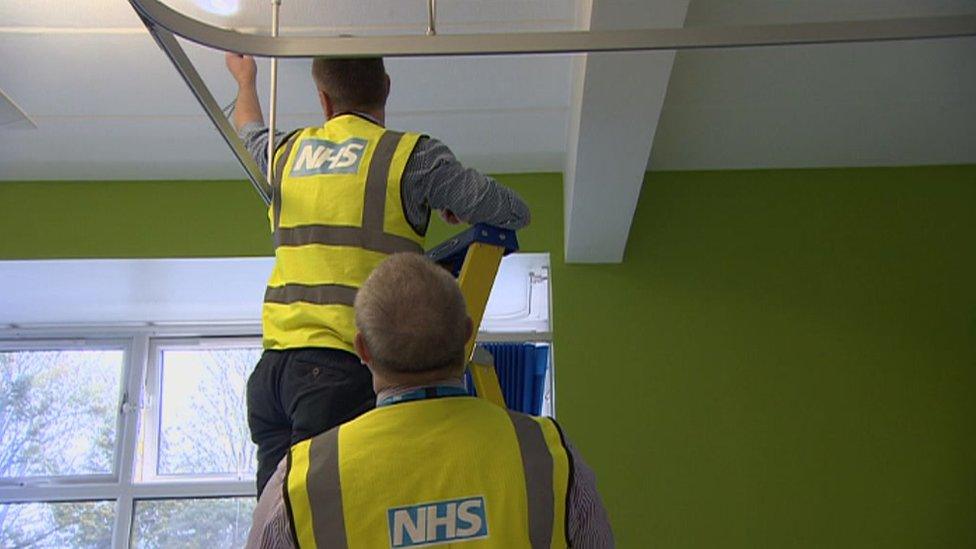School meals disrupted by dangerous concrete repairs at Sheffield primary
- Published

Reinforced autoclaved aerated concrete was detected in the roof above the kitchens at Abbey Lane Primary School in Sheffield
Alternative meal arrangements will be in place for students at a Sheffield school as work to replace a roof made with a type of concrete prone to collapse is carried out.
The city council said reinforced autoclaved aerated concrete (RAAC) was present over the kitchen area at Abbey Lane Primary School, in Woodseats.
Work began in July and is due to finish in December at a cost of £620,000.
It comes as more than 100 schools were told to shut buildings over concerns.
Councillor Dawn Dale, chair of education, children and families policy committee at Sheffield City Council, said: "We have worked with parents and carers at Abbey Lane Primary School over the last few months to reassure them that RAAC will have minimal impact [at the school].
"Alternative meal arrangements will be in place from next week as the replaced roofing covers the kitchen area.
"This information has been communicated to parents and carers of children who attend the school."
In a statement published on Abbey Lane Primary's website, the school said it would reopen as planned on Tuesday 5 September.
'Totally unacceptable'
Labour MP Louise Haigh, whose Sheffield Heeley constituency includes the school, said she had been told a temporary kitchen had been installed at the site to ensure hot meals could still be prepared.
She accused the government of failing to act "appropriately or responsibly", noting that the safety of RAAC had been identified as an issue back in 2018.
"It is appalling that the government has allowed schools across the country to fall into such dilapidation and are now expecting Councils and schools to foot the bill," she said.
"Just days before children return to school after the summer break, it is totally unacceptable that children, schools and parents and carers have been put in this position."
RAAC is a lightweight "bubbly" form of concrete used widely between the 1950s and mid-1990s - usually in the form of panels on flat roofs, as well as occasionally in pitched roofs, floors and walls. It has a lifespan of about 30 years.
The Department for Education (DfE) announced on Thursday that any space or area in schools, colleges or nurseries, with confirmed RAAC should no longer be open without "mitigations" being put in place.
The Local Government Association said it had been warning about the risk of RAAC since 2018.
Schools Minister Nick Gibb told BBC Radio 4's Today programme the guidance changed because "a beam that had no sign... that it was a critical risk and was thought to be safe collapsed".
"What we discovered over the summer was a number of instances, in schools and in non-schools, in England and outside England, where RAAC that had been considered to be a low risk actually turned out to be unsafe," he said, adding that some evidence of this came "as late as last week".
A "minority" of schools will need to "either fully or partially relocate" to alternative accommodation while those measures are installed, the DfE has said.
But the DfE has not given a timeline for replacing the material

Follow BBC Yorkshire on Facebook, external, Twitter, external and Instagram, external. Send your story ideas to yorkslincs.news@bbc.co.uk, external.
- Published1 September 2023

- Published19 September 2023

- Published1 September 2023

- Published5 July 2022
